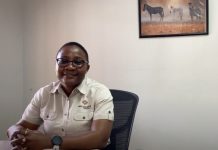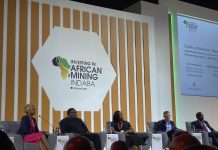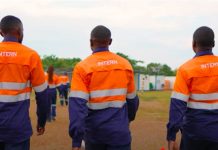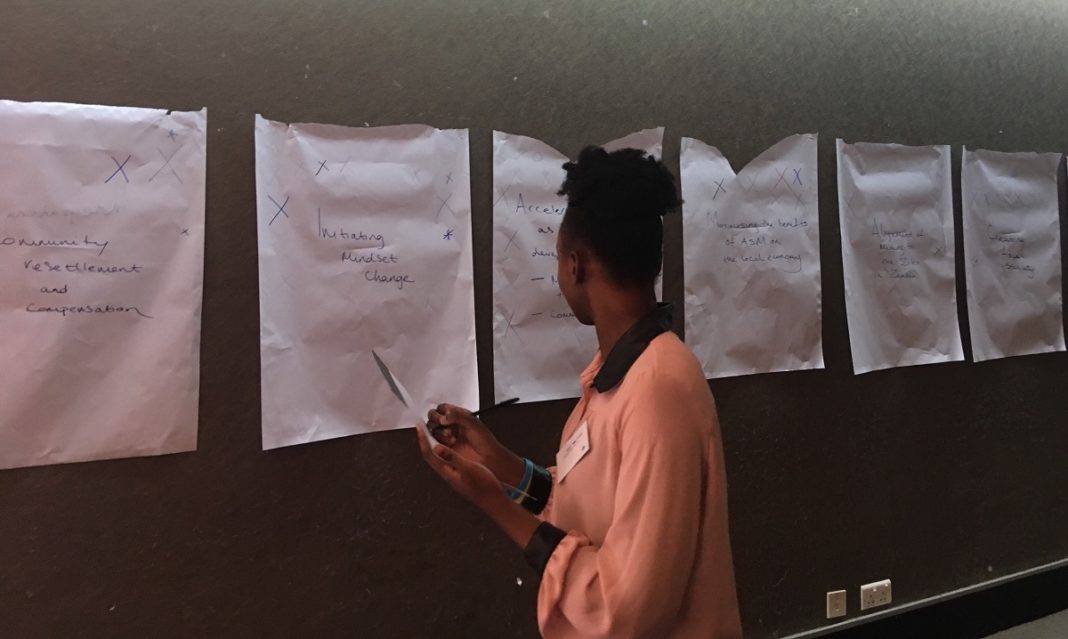Optimism about the future of Zambia’s mining industry came face to face with pragmatism and a healthy sense of the sector’s challenges at a lively roundtable discussion in Lusaka on 14 October. The roundtable event, Mining in Zambia: What Does Success Look Like? was convened by the Development Partner Institute (DPI), an organisation that aspires to see the mining industry become an integrated and proactive development partner.
The participants’ backgrounds and roles were as varied as the opinions they shared during the whole-day event — at first somewhat cautiously but, as the day wore on, with the vivacity and openness that is the very goal of a multi-stakeholder dialogue, where everyone’s views are both encouraged and free from attribution beyond the event.
Representatives from the mining sector, civil society, (Zambian and non-Zambian) government, faith-based groups, and companies of all sizes — including suppliers to the mining sector — came together during several interactive sessions to brainstorm and problem-solve issues facing the industry, from guidelines for the resettlement of mining communities, to the importance of fiscal stability.
“The Development Partner Institute’s goal is for mining to contribute to economic and social progress for countries, communities and companies,” explained Wendy Tyrrell, Executive Director of the DPI, which was established in 2016, building on the work of the Kellogg Innovation Network. “The purpose of bringing stakeholders together on 14 October was to explore, from a diversity of perspectives, the challenges and the opportunities for mining in its role as contributing to the development of Zambia,” she told Mining For Zambia.
“We find enabling different stakeholders to connect with one another to be really valuable because it gives you a much better picture of what those challenges and opportunities are. The day of discussion in Lusaka was about finding out where the common goals are, what our common purpose is, and asking: What are the things that we could work on as a collective that we can’t do on our own?”
Creating a roadmap for success and sustainability in the mining sector
Creating a “roadmap” was the first in a series of tasks that participants tackled, starting with identifying what the characteristics of “success” are, and culminating in an action plan.
“A favourable tax regime is essential,” said one group. “We want to see more partnerships with local communities, and more transparency. Mining companies should say how much they are making, and government should be open about how much they take in taxes.”
“Enabling different stakeholders to connect with one another is really valuable because it gives you a much better picture of what the challenges and opportunities are. The day of discussion in Lusaka was about finding out what our common purpose is.”
A representative from a mining company pointed out the importance of managing expectations within communities. “Working with communities as stakeholders requires miners saying what they have the capacity to do. Building roads may not be something that they do, so communities need to know what to expect.”
A government representative described another challenge: Communities may be averse to mining companies. “They often think the mining companies must give, give, give. But collaboration between miners and communities is necessary.”
A member of the private sector commented: “Policies must be more forward-looking. More information should be shared on the mining sector: What are the costs that mining companies in Zambia incur, and how can we benchmark those with other countries?”
A private equity investor echoed the sentiment, insisting that the only way for mines to plan for the future is if the government’s tax policies are more consistent. “We need to de-risk the industry,” they said. “Local suppliers can be a springboard to ensure livelihoods after the life of mine.”
Another diverse group of eight people summarised their vision for the sector, emphasising the importance of how land resettlements are handled by mining companies. One miner pointed out that cash was often preferable to land as a form of compensation. “But cash is not sustainable. As far as possible, we avoid cash compensation. Instead, where households around the mine site were moved, they were given extra land. If they had lived and farmed on five hectares, they are given ten, and ten hectares becomes fifteen. In the first year, we provided seed and animals; in the second year, a tractor. People’s livelihoods need to be developed and improved.”
Without fiscal stability, there is no development
The room was faced with an entirely different viewpoint as another group communicated their vision for a “successful” mining sector. “There’s no point talking about the ideal resettlement policies — or anything else that could and should exist — without addressing fiscal stability,” a government representative said boldly. “Fiscal stability brings about stability — and, without that, no one is investing in Zambia.”
“We need to de-risk the industry. Local suppliers can be a springboard to ensure livelihoods after the life of mine.”
When suppliers lose contracts because of slowing production, ten people in one family are often impacted by job losses, regardless of where in the country they live, the spokesperson pointed out. “When the country goes through economic challenges, the government looks for ways to get more revenue. How can we ensure that stakeholders’ consultation is incorporated into the final decision-making process?”
The session was opened for comments. Another government representative took the floor: “Because of consultation, we had to revert to VAT. Certainly the ministry is open to consultation with stakeholders.” A miner responded: “If there is consistency in policy, we also need harmony across ministries.”
Voting with your feet
After a tea break, participants returned to the conference hall to find eight large sheets of paper pinned to the walls, with phrases and ideas that had come out of the previous session written on each of them. Everyone was given three votes and asked to select which of the topics and talking points that had emerged from their conversations they felt were most important to continue exploring. Three topics emerged:
- Community compensation and resettlement
- Accelerating mining as a sustainable development partner
- Fiscal stability
New groups were formed based on people’s votes, and another series of fruitful discussions and ideas-sharing began.
“The process that the DPI follows is very interactive,” said Tyrrell, reflecting on the format of the event. “It’s not about lots of presentations. It’s about people sitting down together to find where there is a common purpose, and then thinking through the innovative ways that we can tackle some of the challenges and the opportunities presented. During the second session, we initiated a process where we asked people to stand in the shoes of other stakeholders to enable an even greater set of perspectives — and that’s really powerful.”
It certainly did make an impact when, midway through the afternoon, participants were asked to continue their discussions and planning sessions as if in someone else’s proverbial shoes. They turned over their name tags to find randomly assigned roles: ‘government’, ‘private sector’, ‘civil society’ or ‘investor’ — and the extent to which the views they shared changed was quite remarkable. “We hope an exercise like this enables people to see with compassion and empathy how others might view what they think is important for Zambia,” explained Tyrrell.
The DPI leans on dynamic methods for finding common ground within the mining industry. The team has a long history in the mining sector, with deep experience working in industry, government and civil society. Tyrrell’s own motivation is rooted in her earliest interaction with the sector.
“My first encounter with mining was as a child. Exploration drillers came onto my family’s cattle farm [in Australia] to put down a seismic line. We were in the midst of a drought and when my father was checking the water one day, he discovered that the cattle gates had been left open and the drillers had taken water out of one of our dams without asking. He was livid at the lack of respect. Years later, when I told my parents that I was joining the mining industry, my father wagged his finger at me and said: You have a very big responsibility to make sure that this kind of thing doesn’t happen again.”
Tyrrell got a Science degree and began working in the industry in an environmental role. Her passion for the importance of multi-stakeholder dialogue stemmed from her involvement in a river catchment management project in Queensland, where 35 different stakeholder groups were struggling to agree on a way forward.
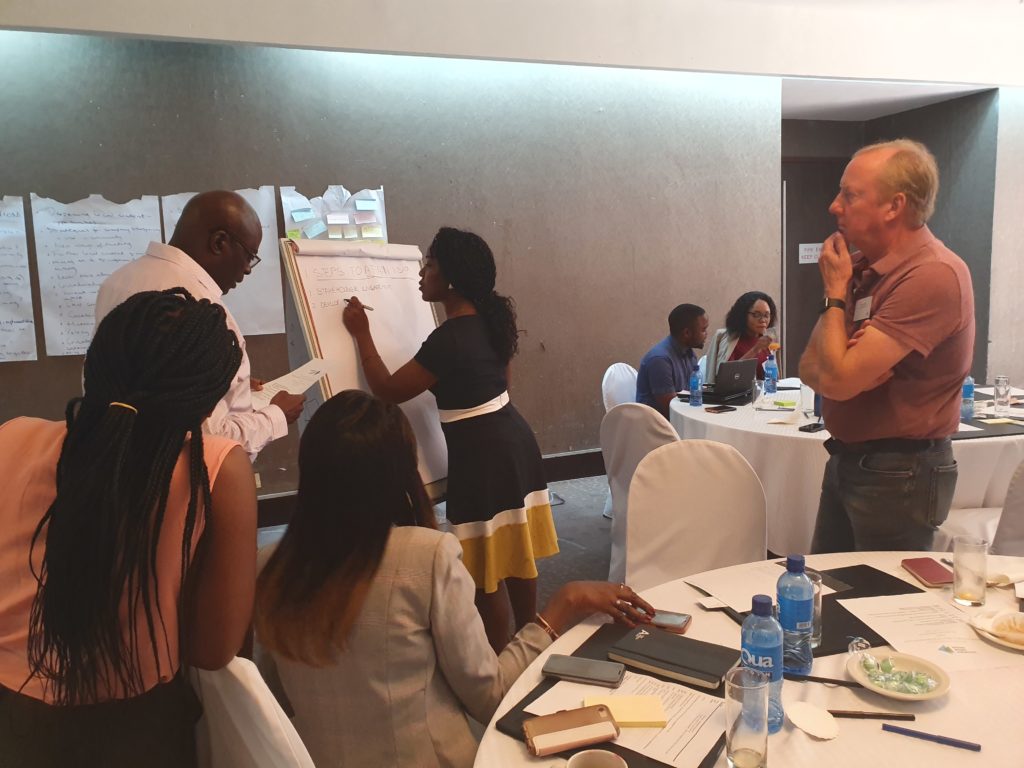
“I loved that you could bring different stakeholders together that didn’t agree, but then found a thread of common purpose. So my career progressed in that direction: I went from working on environmental aspects to working on community and social aspects of mining.”
Certainly, the diversity of views at the DPI’s event might have been viewed as a formidable challenge. But turning challenges into opportunities is one of the DPI’s main objectives.
The need to diversify Zambia’s economy was perhaps the most urgent and frequently expressed goal among all manner of stakeholders who joined the DPI’s day of discussion. In partnership with interested parties, the next step is for the DPI to facilitate further exploration of these goals and emerging priorities, and for the sector’s various stakeholders to collectively develop an action plan for their implementation.
“Ultimately, we need to look at what has been identified through these conversations, and where we can create collective action,” Tyrrell said. “Nothing should be ruled out at this stage, even if it didn’t arise explicitly from our first roundtable. But certain topics and ideas definitely had the collective energy of the group. And that’s a good starting point.”
See also: Only through growth can we deliver more











